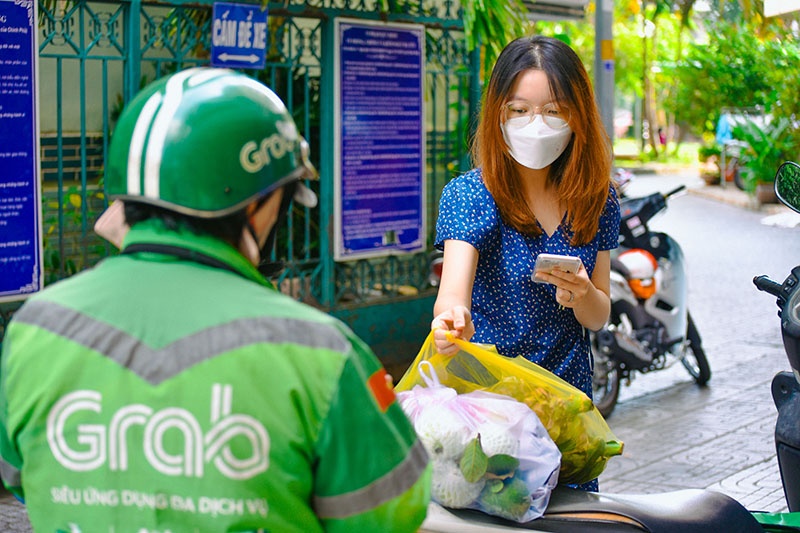Vietnam's pandemic restrictions greatly widen Grab's losses
 |
| Mobility restrictions across the region have eaten into Grab's revenue |
Grab’s losses include $748 million in non-cash items. This primarily consists of interest accrued on Grab’s convertible redeemable preference shares, stock based compensation and fair value changes on investments.
Meanwhile, Grab's third-quarter revenue was $157 million, down 9 per cent on-year as a result of a decline in mobility due to the severe lockdowns in Vietnam.
The number of monthly transacting users also declined by 8 per cent on-year, as a result of total lockdowns across Vietnam between July and September 2021 which saw both food delivery and ride-hailing services suspended.
Despite a challenging operating environment, the group's Gross Merchandise Value set a new quarterly high of $4.0 billion, up 32 per cent on-year.
“Despite severe lockdowns in Vietnam and heightened restrictions across the region in the third quarter due to COVID-19, we executed well on our superapp strategy and delivered strong growth,” said Anthony Tan, group CEO and co-founder of Grab. “With recovery in sight, and the gradual reopening of economies providing tailwinds to our business, we are doubling down on investments that will help us capture a greater share of the opportunities in front of us and open up new addressable markets for Grab, such as groceries.”
When Vietnam started to ease restrictions, Grab was the first platform to resume offering mobility services within government restrictions in Ho Chi Minh City and Hanoi. The group estimates that monthly transacting users in Vietnam would have grown to 24.8 million after the social distancing period.
Grab also announced in November the addition of new major retail chains to GrabMart as it continues to scale up grocery delivery across Southeast Asia. New partners joining GrabMart include Mega Market in Vietnam, a leading wholesaler and distributor of grocery products.
What the stars mean:
★ Poor ★ ★ Promising ★★★ Good ★★★★ Very good ★★★★★ Exceptional
Related Contents
Latest News
More News
- PM outlines new tasks for healthcare sector (February 25, 2026 | 16:00)
- Ho Chi Minh City launches plan for innovation and digital transformation (February 25, 2026 | 09:00)
- Vietnam sets ambitious dairy growth targets (February 24, 2026 | 18:00)
- Masan Consumer names new deputy CEO to drive foods and beverages growth (February 23, 2026 | 20:52)
- Myriad risks ahead, but ones Vietnam can confront (February 20, 2026 | 15:02)
- Vietnam making the leap into AI and semiconductors (February 20, 2026 | 09:37)
- Funding must be activated for semiconductor success (February 20, 2026 | 09:20)
- Resilience as new benchmark for smarter infrastructure (February 19, 2026 | 20:35)
- A golden time to shine within ASEAN (February 19, 2026 | 20:22)
- Vietnam’s pivotal year for advancing sustainability (February 19, 2026 | 08:44)

 Tag:
Tag:




















 Mobile Version
Mobile Version